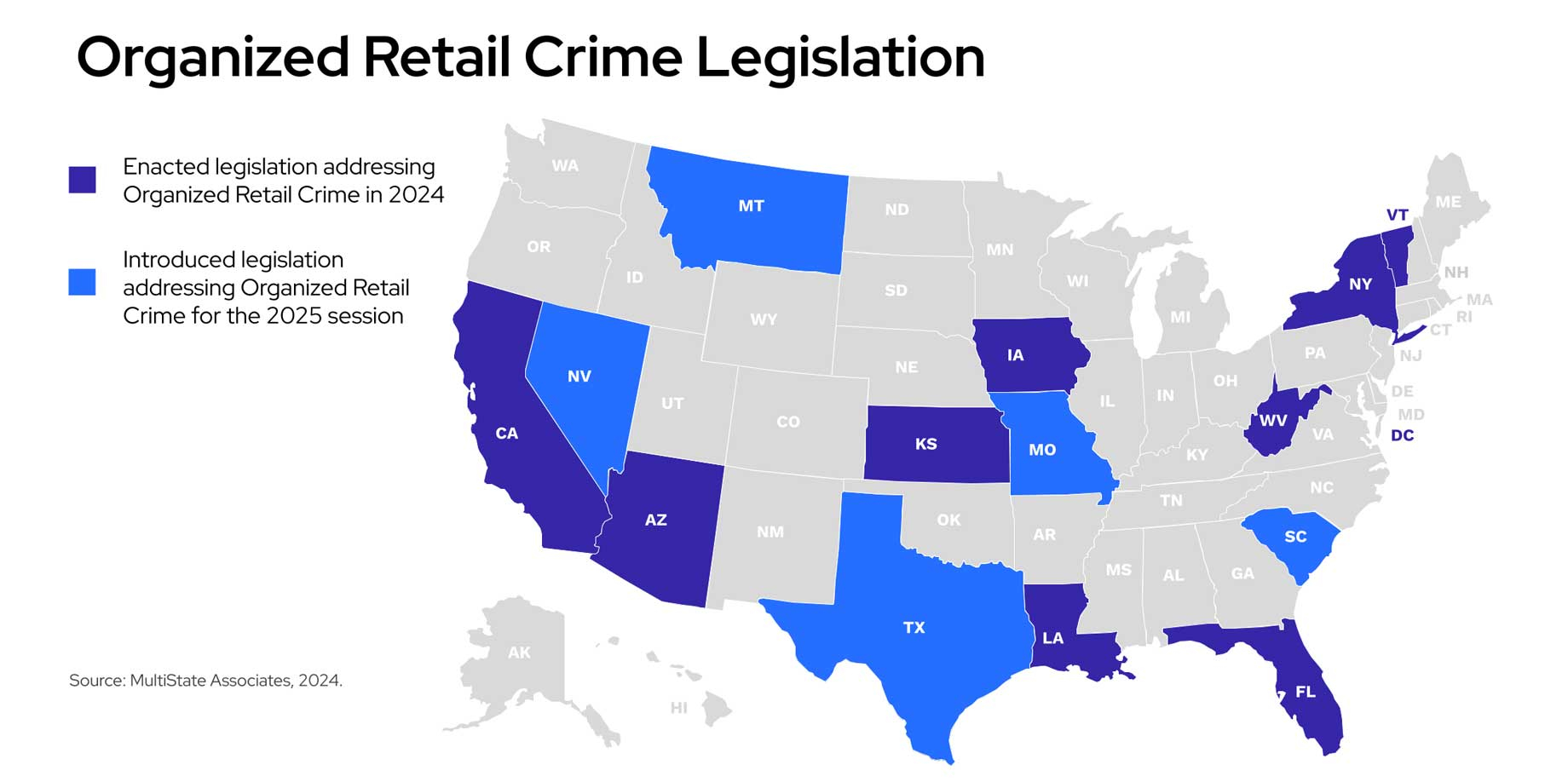As states prepare for the start of legislative sessions in January, lawmakers in five states–Missouri, Montana, Nevada, South Carolina and Texas–have already introduced 10 bills targeting organized retail crime (ORC). While each bill is different, the first set of ORC bills for 2025 broadly increases penalties for offenders with some providing tougher sentencing for aggravated thefts.
Legislation prefiled last month in Texas (TX HB 1037) would lower the threshold for felony and misdemeanor classes for theft, while two Missouri bills (MO SB 143 and MO HB 277 ) establish felony threshold levels for multiple retail thefts during a period of 120 days. Bills addressing ORC have been introduced in Montana and Nevada as well, but the text for those bills has not been published yet.
For violent thefts, a bill (SC HB 3523) in South Carolina would provide prosecutors a graduated penalty structure for retail theft offenses with an added felony offense for aggravated cases of ORC. Meanwhile, a Missouri lawmaker filed legislation (MO SB 318) that would make trespassing on a retail establishment with the purpose of causing danger to people or property a class B misdemeanor.
Curbing the spread of organized retail crime has been a major priority for state lawmakers over the past few cycles. In 2024, lawmakers in nine states (AZ, CA, FL, IA, KS, LA, NY, VT and WV) plus D.C. enacted 23 pieces of legislation addressing different aspects of organized retail theft. Most of the measures enacted by lawmakers focused on the following objectives: 1) providing more flexibility for prosecutors to charge offenders with the total value of stolen goods across multiple jurisdictions, 2) increasing funding for law enforcement to investigate ORC cases, and 3) enforcing tougher punishment for repeat offenders.
State legislation allowing prosecutors to aggregate the total number of thefts across multiple jurisdictions has been a key policy towards tougher sentence standards for offenders. This year, lawmakers in Florida (FL HB 549) and Kansas (KS HB 2144) enacted bills to give law enforcement up to 12 months to aggregate the total value of thefts. Typically, theft aggregation laws give prosecutors a 60- or 90-day period to charge thieves with total goods stolen.
The biggest wins this year were in states that have been greatly impacted by ORC: California and New York. Lawmakers in Albany provided funding in the state budget (SB 8305/AB 8805 and AB 8809/SB 8309) for a statewide ORC Task Force, tax credits for store owners to purchase security cameras and tougher penalties for thieves who assault retail workers and commit multiple thefts across different jurisdictions. While in California, voters approved, by a 7 to 3 margin, a ballot measure to allow prosecutors to charge repeat theft offenders with felony theft, regardless of the dollar amount stolen. California Governor Gavin Newsom (D) also signed a legislative package in September that increases penalties for repeat theft offenders and provides law enforcement with additional tools to pursue retail thieves.
